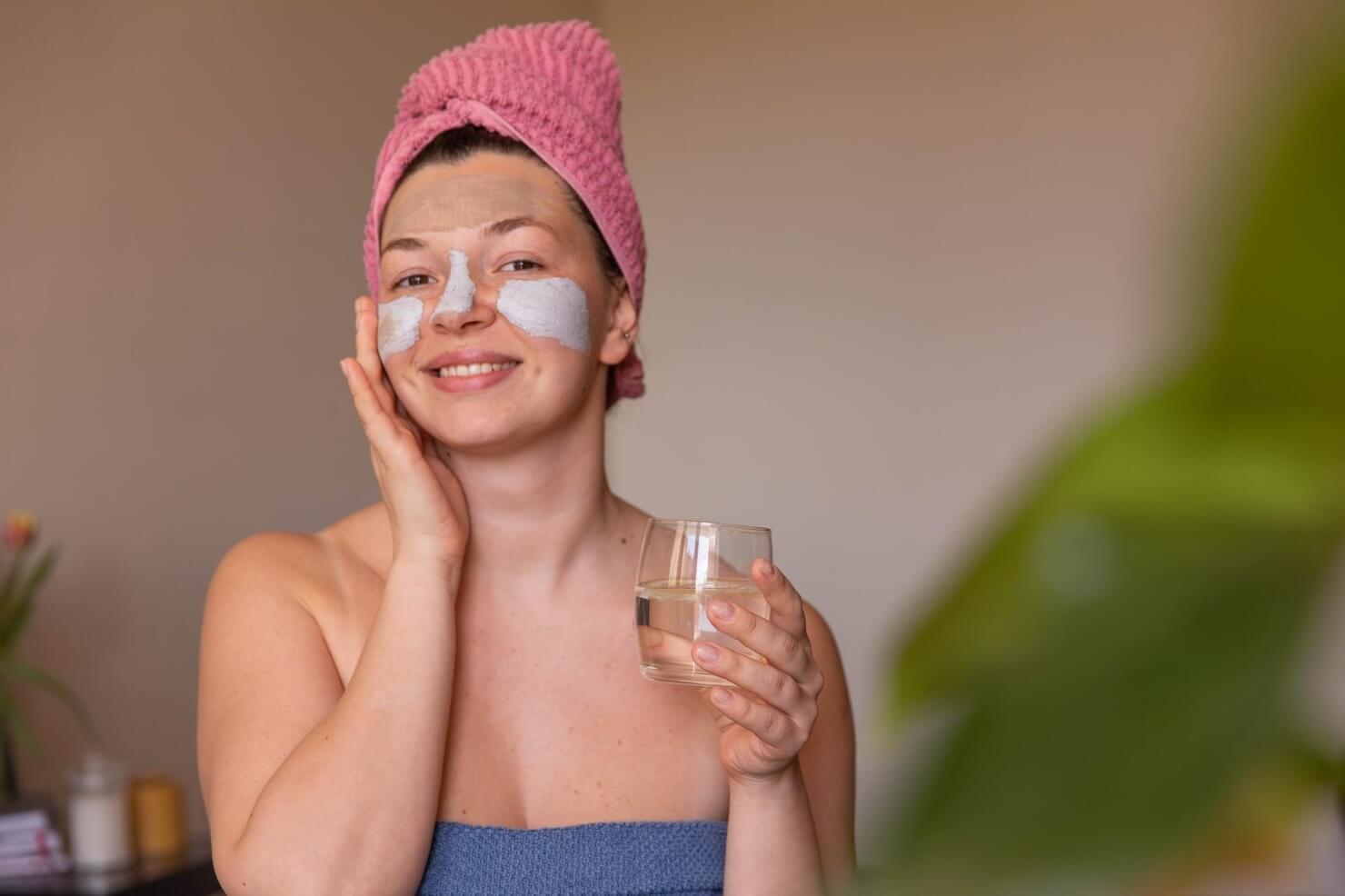As the winter season rolls in, it brings with it colder temperatures, shorter days, and often, a slower pace of life. This time of year provides the perfect opportunity to turn inward and focus on self-care rituals that help relax and rejuvenate both mind and body. Winter self-care is about nurturing yourself through routines that help combat seasonal stress, enhance physical well-being, and create a sense of inner warmth.
The winter months can be tough on your body and mental health, making it essential to adopt practices that keep you feeling balanced and nourished. Whether you’re battling dry skin, low energy, or simply need a break from the holiday rush, here are some winter self-care rituals to help you feel restored and ready to face the colder months with calmness and strength.
Why Winter Self-Care Is Important
Winter is often a time when people experience a drop in energy levels and mood due to the lack of sunlight and colder temperatures. Seasonal Affective Disorder (SAD), a form of depression triggered by seasonal changes, affects many people during the winter months. The chill in the air can also lead to physical discomfort, including dry skin, stiff joints, and decreased immune response.
Winter self-care rituals can help to:
- Boost your mood and energy levels
- Improve mental clarity and focus
- Hydrate and nourish your skin and body
- Alleviate stress and anxiety
- Enhance sleep quality
Incorporating daily rituals into your winter routine can make the season more enjoyable and less taxing on your physical and mental health.
1. Create a Cozy Environment
Creating a warm and inviting space is essential for relaxation in the winter months. Start by filling your home with comforting elements such as soft blankets, candles, and warm lighting. Hygge, the Danish concept of creating coziness, can be a guiding principle for transforming your living space into a sanctuary.
- Candles and Aromatherapy: Light scented candles with calming fragrances like lavender, vanilla, or sandalwood. Aromatherapy can help reduce stress and create a peaceful atmosphere.
- Warm Blankets and Throws: Keep fluffy blankets in your living room and bedroom for extra warmth. Surround yourself with soft textures that make you feel nurtured.
- Dim Lighting: Avoid harsh overhead lights and opt for soft, ambient lighting using lamps or fairy lights to create a relaxed, serene environment.
2. Hydrate Your Skin with Natural Oils and Creams

Cold, dry air can strip your skin of its natural moisture, leaving it feeling tight, dry, and irritated. To combat this, focus on nourishing and moisturizing your skin using natural ingredients.
- Hydrating Oils: Use nourishing oils like coconut oil, jojoba oil, or argan oil to moisturize your skin after a warm shower. Oils help to seal in moisture and protect the skin’s barrier.
- Exfoliate Regularly: Gently exfoliate once or twice a week to remove dead skin cells. Use a sugar scrub or a gentle exfoliating glove to help increase circulation and give your skin a smooth, healthy glow.
- Hydrating Masks: Treat your face to a hydrating mask once a week. Look for masks with ingredients like hyaluronic acid, aloe vera, or oatmeal to soothe and hydrate dry, irritated skin.
3. Practice Meditation and Mindfulness
Mindfulness and meditation are powerful tools for reducing stress and improving mental clarity. Winter is the perfect time to slow down and integrate these practices into your daily routine.
- Daily Meditation: Start with just 5-10 minutes of quiet meditation each morning or before bed. Find a comfortable spot, close your eyes, and focus on your breath. This practice can help calm your mind and reduce winter blues.
- Mindful Movement: Incorporate mindful movement practices such as yoga or tai chi. These gentle exercises help improve flexibility, reduce tension, and bring awareness to your body and mind.
- Gratitude Journaling: Keep a gratitude journal and write down three things you’re grateful for each day. This practice encourages a positive mindset and helps shift focus from negative winter experiences to things you appreciate.
4. Warm Baths with Epsom Salts

There’s nothing like a warm bath to soothe tired muscles and unwind after a long day. Epsom salts, rich in magnesium, help to relax muscles, reduce inflammation, and promote a sense of calm.
- Essential Oils: Add a few drops of essential oils like lavender, eucalyptus, or chamomile to your bath for an extra relaxing experience.
- Herbal Bath Soaks: Try a bath soak made from dried herbs like chamomile, rose petals, or lavender. These can help ease tension and soften the skin.
- Candlelit Bath: Light some candles around your tub to create a spa-like atmosphere. Let the warmth and calmness of the space help you relax fully.
5. Nourishing Winter Foods
The colder months often call for hearty, nourishing meals that warm you from the inside out. Focus on consuming seasonal ingredients that provide essential nutrients for maintaining your energy and boosting your immune system.
- Soups and Stews: Prepare nourishing soups and stews made from seasonal vegetables like sweet potatoes, carrots, and squash. Adding garlic, ginger, and turmeric to your dishes can provide anti-inflammatory and immune-boosting properties.
- Herbal Teas: Sip on herbal teas like chamomile, peppermint, or ginger throughout the day. Not only do these teas help keep you warm, but they also aid in digestion and provide relaxation.
- Comforting Breakfasts: Start your day with warm oatmeal topped with nuts, seeds, and fresh fruit. This meal is packed with fiber and will keep you full and energized.
6. Prioritize Restful Sleep

Winter is a season when the body naturally craves more rest. Shorter days and longer nights can make you feel more tired, and it’s important to honor this need for increased rest.
- Create a Bedtime Ritual: Set a relaxing bedtime routine that signals to your body that it’s time to wind down. Avoid screens an hour before bed, sip on calming tea, and read a book to prepare for sleep.
- Sleep-Friendly Environment: Make your bedroom a sleep haven by keeping it dark, cool, and quiet. Use blackout curtains, earplugs, or white noise machines to block out disturbances.
- Regular Sleep Schedule: Try to go to bed and wake up at the same time each day, even on weekends. A consistent sleep schedule helps regulate your body’s internal clock and improves overall sleep quality.
7. Move Your Body Daily
Even though winter’s cold can make it tempting to stay inside, physical movement is essential for both mental and physical well-being. Regular exercise can help boost your mood, reduce stress, and keep your immune system strong.
- Indoor Workouts: If it’s too cold outside, opt for indoor activities like yoga, pilates, or strength training. You can follow along with workout videos or join a virtual fitness class to stay active.
- Outdoor Walks: Bundle up and take a brisk walk in nature when weather permits. Spending time outdoors, even in winter, can elevate your mood and give you a dose of fresh air.
- Stretching: Incorporate daily stretching into your routine to relieve tension, improve circulation, and increase flexibility.
Conclusion
Winter self-care rituals can transform the colder months into a time of healing, relaxation, and rejuvenation. By taking the time to nurture your body, mind, and soul, you can improve your overall well-being and navigate the challenges of winter with ease. Whether it’s cozying up in a warm blanket, enjoying a long bath, or nourishing your skin with oils, these simple practices can make a big difference in how you feel throughout the season.
Frequently Asked Questions (FAQs)
Q1: How can I prevent dry skin in the winter?
To prevent dry skin, moisturize daily using natural oils or creams, exfoliate regularly to remove dead skin cells, and use a humidifier in your home to keep the air moist.
Q2: What are some good winter foods to boost immunity?
Nourishing winter foods like soups made from root vegetables, garlic, ginger, turmeric, and leafy greens help support your immune system. Drinking herbal teas like ginger or echinacea can also provide an extra boost.
Q3: How do I stay active during winter when it’s too cold outside?
Indoor activities like yoga, pilates, or strength training can keep you active when it’s too cold to go outside. You can also try dancing or using at-home workout apps to stay fit indoors.
Q4: How can I improve my sleep during the winter?
Set a consistent sleep schedule, create a bedtime routine, and make your bedroom a comfortable and relaxing environment. Avoid screen time before bed and consider drinking a warm, calming tea like chamomile to help you wind down.
Q5: What are some good ways to relax and reduce stress in the winter?
Practicing meditation, enjoying warm baths with Epsom salts, and creating a cozy home environment can help reduce stress. Journaling, gratitude practice, and mindfulness exercises are also effective for promoting relaxation.




